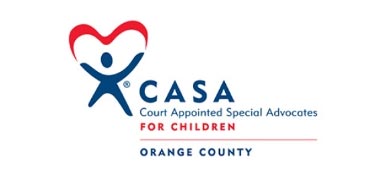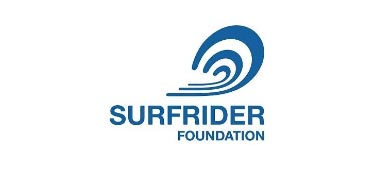
According to the Substance Abuse and Mental Health Services Administration (SAMHSA) horrible statistics exist for the following disorders within the United States:¹
- More 10 million suffering from opioid addiction;
- More than 2 million suffering from methamphetamine addiction;
- More than 14 million suffering from alcohol dependency;
- More than 51 million suffering from a serious mental disorder (psychosis, bi-polar
disorder, major depression, etc.).
With those statistics in mind, substance abuse problems are relevant for more families than estate taxation so it deserves a place in planning discussions.
Addiction by itself is not a “special need” as contemplated by the law establishing statutory special needs trusts. To determine whether a special needs trust may be appropriate, ask, “if the addiction were not there, would the problem still exist”. Since many people who struggle with addiction have mental health issues, the answer will depend on the person.
Here are some examples of key language that one can consider including in their trust agreement to support monitoring and assisting a beneficiary with a substance abuse issue. To the extent the addiction is not substance but for gambling or sex or other addiction, there are similar provisions regarding consulting with mental health professionals to help the individual in facing those challenges.
Testing Sample Language
Sample A. The Trustee in consultation with the treatment team shall engage a reliable and licensed drug testing company to randomly drug test the Beneficiary [during the first 5 years of Recovery (as defined above)]. The Trustee in consultation with the treatment team is authorized to require continued testing for so long as the Trustee deems such testing to be advisable, regardless of any other provision herein. Full disclosure of results from such tests shall be made in a timely manner to the Trustee.
Sample B. The Trustee may, if the Trustee is aware of or suspects substance and/or alcohol abuse by the child, demand that he or she take tests for substance and/or alcohol abuse within twenty-four (24) hours of the time he or she is personally served with a written demand from the Trustee that he or she take such a test. The type of testing and the facility where the test will occur shall be chosen by the Trustee. The Trustee is advised that two (2) separate tests should be administered during each test, with the “hair test” and the “urine test” being concurrently preferred two (2) methods of testing; provided, however, the Trustee shall be entitled to utilize, in its discretion, and rely upon, whatever two (2) testing methods are available at the time.
Positive Test Sample Language
Payments suspended anytime Trustee determines that a child:
(i)routinely or frequently uses or consumes any illegal drugs or other illegal chemical substance so as to be physically or psychologically dependent upon that drug or substance,
(ii)and as a result of such use or consumption, such child is incapable of caring for himself or herself or is likely to dissipate his or her financial resources;
(iii)is clinically dependent upon the use or consumption of alcohol or any other legal drug or chemical substance that is not prescribed by a licensed medical doctor or psychiatrist in a current program of treatment supervised by a doctor or psychiatrist,
(iv)has, in the Trustee’s discretion, been determined to have a gambling problem or addiction, which must be demonstrated by a loss of more than $5,000 in gambling on any sport or activity within any 12 month period, or demonstrated by any criminal charges associated with gambling,
Treatment. During the period of any suspension that is due solely to a determination by the Trustee of drug or alcohol abuse, the Trustee shall have the discretion, but not the obligation, to utilize the funds available in the child’s separate trust to provide for the treatment, maintenance and support necessary to free (or attempt to fee) the child of said abuse.
As the samples above demonstrate, there are very particular and necessary provisions to empower the fiduciaries and others to assist. These are just a few of the key provisions that can be incorporated into a trust and other estate planning documents to help a struggling family member, even beyond the lifetime of the person establishing a trust. Unfortunately, it is rare that addiction is addressed in estate planning conversations with most practitioners despite this being an issue affecting roughly one-third of American households. Do not be afraid to raise this issue and seek out a planning attorney that has experience in creating bespoke provisions that can help protect a loved one.
Tips and points to discuss with your estate planning attorney
1-HIPAA waivers should be in place for any one supervising the addicted individual
2-Think of a team approach to gain expertise and prevent burn out
a.This could be intervention specialist, psychotherapist, parenting coaches,
b.If not in treatment or contending with addiction now, make sure the trustee can hire the team later
3-Decide what goals you want to achieve through the trust so the trust can be crafted to meet those goals (this is good advice for anybody making estate planning changes)
4-Address access to trust funds
a.during sobriety
b.during any relapse period
5-Think of who else can assist, such as trust protector or trust advisory committee. (This could be where you allow family or friends to provide guidance if you have a professional or corporate trustee)
6-Think long-term, particularly if the beneficiary is the next generation down from the individuals establishing the trust.
¹ [ Substance Abuse and Mental Health Servs. Admin., Key Substance Use and Mental Health Indicators in the United States: Results from the 2017 National Survey on Drug Use and Health (2019), https://www.samhsa.gov/data/release/2019-national-survey-drug-use-and-health-nsduh-releases (2019 NSDUH Annual National Report). ]
Testimonials
Charities We Support
We dedicate pro bono time, volunteer services, and a percentage of our gross revenue to these organizations. In 2023, we sponsored a refugee family of five to come to the United States and start a new life.
Each year our law firm decides as a group which charities to assist with our time, money, and expertise. Please feel free to click on any of the charities below and make a donation of your own.


















